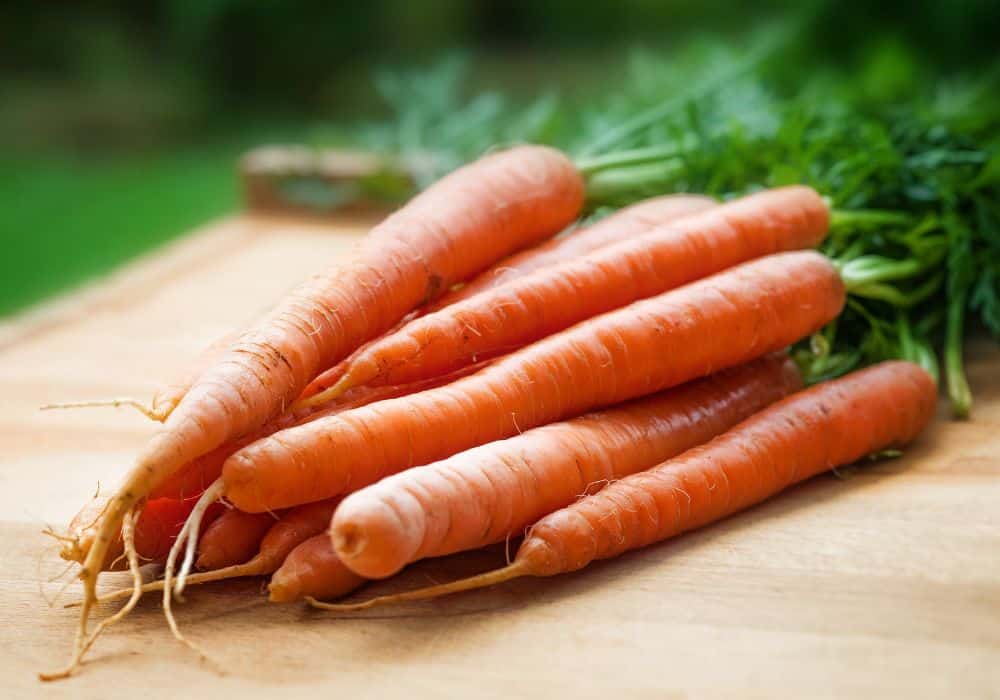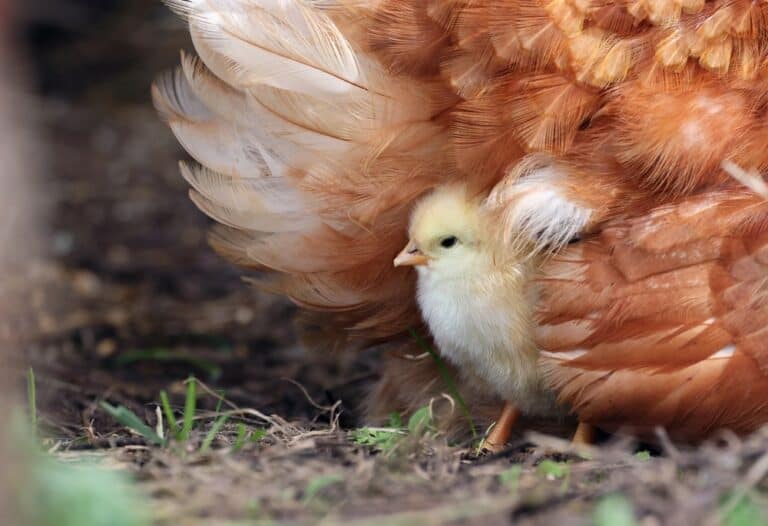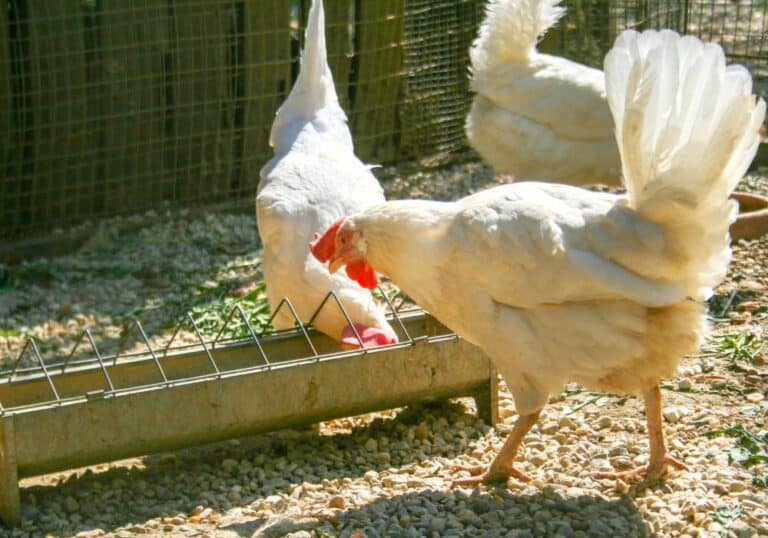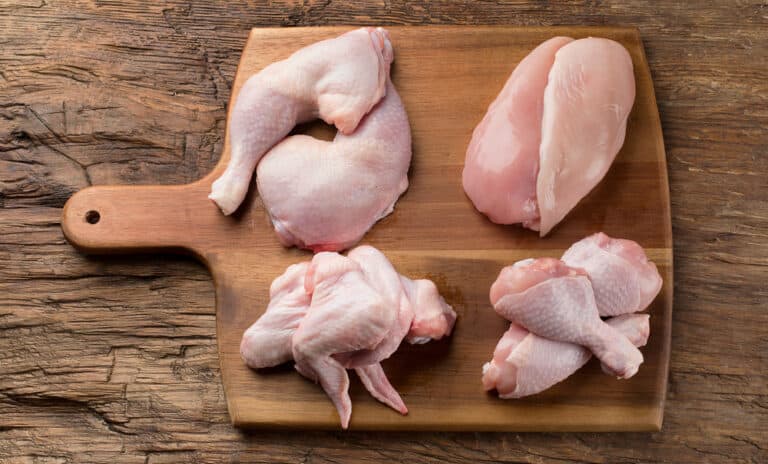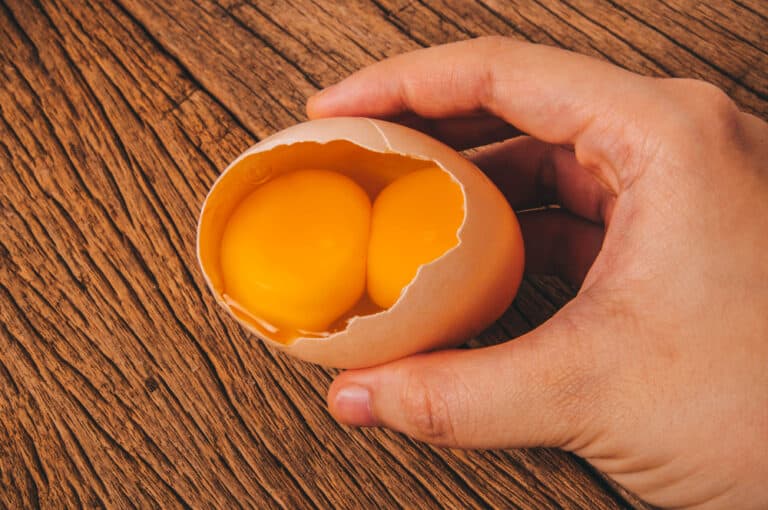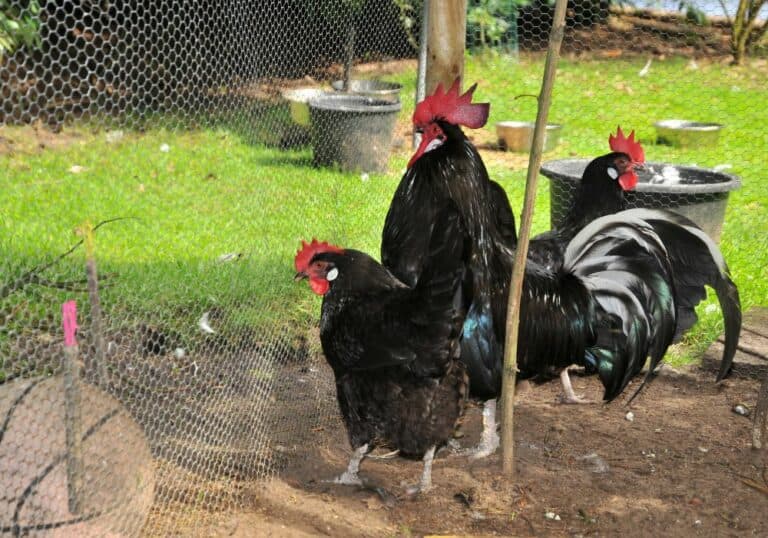Chickens have a broad appetite and eat almost anything you feed them, including seafood, grains, proteins, and vegetables. However, is it every type of vegetable your chicken can eat? More importantly, can chickens eat carrots?
While not every vegetable is safe for chickens, carrots are safe and nutritious for your flock, so chickens can eat carrots. Carrots provide many nutrients that keep chickens healthy and significantly improve their growth performance.
If you’re considering incorporating carrots into your chickens’ diet, you should know their health benefits, nutritional value, and the best ways to prepare them for your chickens. This article will cover that and more.
Nutritional Facts About Carrots
Carrots are crispy, delightful vegetables loaded with vitamins, nutrients, and a healthy amount of water. They are typically orange, although some domesticated carrot varieties can be white, red, yellow, black, or purple.
Regardless of color, carrots contain a decent amount of fiber and beta-carotene. Let’s look at a breakdown of the nutrients found in these delicious root vegetables.
Nutrients Contained in 100 grams of Raw Carrots
- Energy 41 kcal
- Water 88.3 g
- Protein 0.93 g
- Fat 0.24 g
- Carbohydrate 9.58 g
- Fiber 2.8 g
- Sugars 4.74 g
- Potassium 320 mg
- Magnesium 12 mg
- Phosphorus 35 mg
- Vitamin C 5.9 mg
- Vitamin K 13.2 ug
- Folate 19 ug
- Zinc 0.24 mg
Carbohydrates
Carrots are low glycemic index foods that contain glucose and sucrose carbohydrates. This means they are gradually broken down in the intestinal tract, causing blood sugar levels to rise steadily and healthily.
This low glycemic index provides many health benefits to chickens, including maintaining healthy amounts of fat and boosting energy levels.
Fiber
Carrots are high in pectin, a soluble fiber necessary for proper digestion in birds. Pectin also helps maintain healthy gut bacteria, keeping your chickens’ bowel movements as regular as possible.
Besides pectin, the delicious root vegetables contain insoluble fibers like cellulose, lignin, and hemicellulose. These insoluble fibers reduce constipation and regulate digestion.
Carrots might be the answer if you’re looking for an easy way to soothe your chicken’s irritated stomachs and stop them from having watery or irregular stools.
Vitamins & Minerals
As mentioned earlier, carrots have a long list of essential vitamins and minerals, with each vitamin playing an important role in improving chickens’ overall health.
In addition to the vitamins listed above, carrots contain Biotin, Vitamin K1, Potassium, and Vitamin B6. These vitamins are necessary for improving bone health, boosting immunity, and promoting blood coagulation.
They also regulate blood pressure while improving the rate at which your birds stay active during the day.
Health Benefits of Carrots to Chickens
Now that you know what is in a carrot, let’s look at the potential health benefits of adding carrots to your chicken’s diet.
1. Boosts Immunity
Carrots are loaded with Beta Carotene, a red-orange antioxidant responsible for carrots’ colors which can be converted to vitamin A when digested. This composition makes it effective in regulating immune function and keeping your chickens protected from life-threatening infections.
However, this doesn’t mean that feeding only carrots to your chickens will keep them safe from all diseases, but mixing carrots with other immunity-boosting foods will certainly help.
2. Promotes Good Vision
You may have heard of how good carrots are for human vision. Well, the same goes for chickens too. Vitamin A, contained in carrots, promotes good eye health and reduces the risk of developing certain eye deficiencies like night blindness.
3. Enhances Feathering
Carrots’ antioxidants, potassium, and carotenoids are excellent bird feathering promoters. This may help enhance the growth of robust and healthy chicken feathers.
4. Prevents Dehydration
Due to the high amount of water in carrots, they can serve as good sources of hydration for your birds. If your chickens don’t drink water as much as they should, adding carrots to their diet may be an excellent way to prevent severe dehydration.
5. Promotes Good Liver Health
Carrots are high in Glutathione, an essential antioxidant that helps prevent oxidative stress and significantly improves liver health in chickens.
The Beta Carotene and plant flavonoids carrots contain are also helpful in enhancing liver function. A healthy liver ensures that toxins are regularly eliminated, allowing chickens to remain free from certain diseases.
How to Prepare Carrots for Chickens?
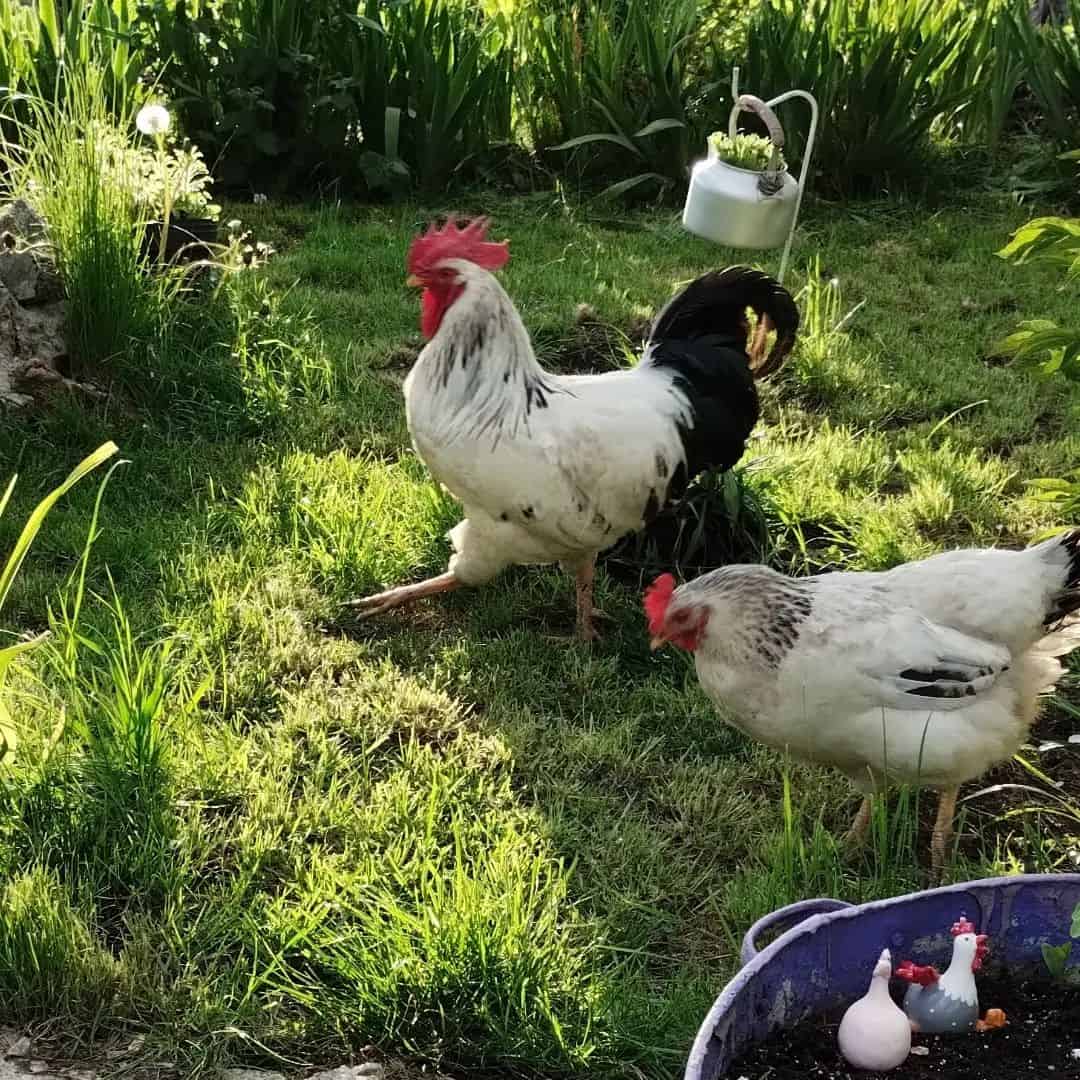
Fresh carrots can be consumed in their raw state and can also be cooked or steamed. However, raw carrots might be more difficult for chickens to peck at when compared to cooked carrots, but it might help them stay active as they run around pecking at the carrots.
The best way to make it easier for chickens to eat carrots is to chop them into small bite-sized or medium-sized chunks. You can follow these simple steps to ensure you’re preparing them as best as possible:
- Wash the carrots properly with clean water.
- Chop off the carrot tops and dice the carrots. You can also slice or grate the carrots into smaller pieces.
- Steam in boiling water for at least five minutes.
- Drain and allow to cool before serving to your flock.
- You can also mix the cooled carrot bits into your chickens’ regular feed to make it tastier and more nutritious.
If you’re cooking the carrots you want to feed your chickens, you should know that cooking releases antioxidants but depletes some nutrients, making them a little less nutritious than raw carrots.
However, there are still a bunch of nutrients your birds can get from cooked carrots. So cooked carrots are still going to be nutritious, only softer.
Other Vegetables You Can Feed Your Chickens
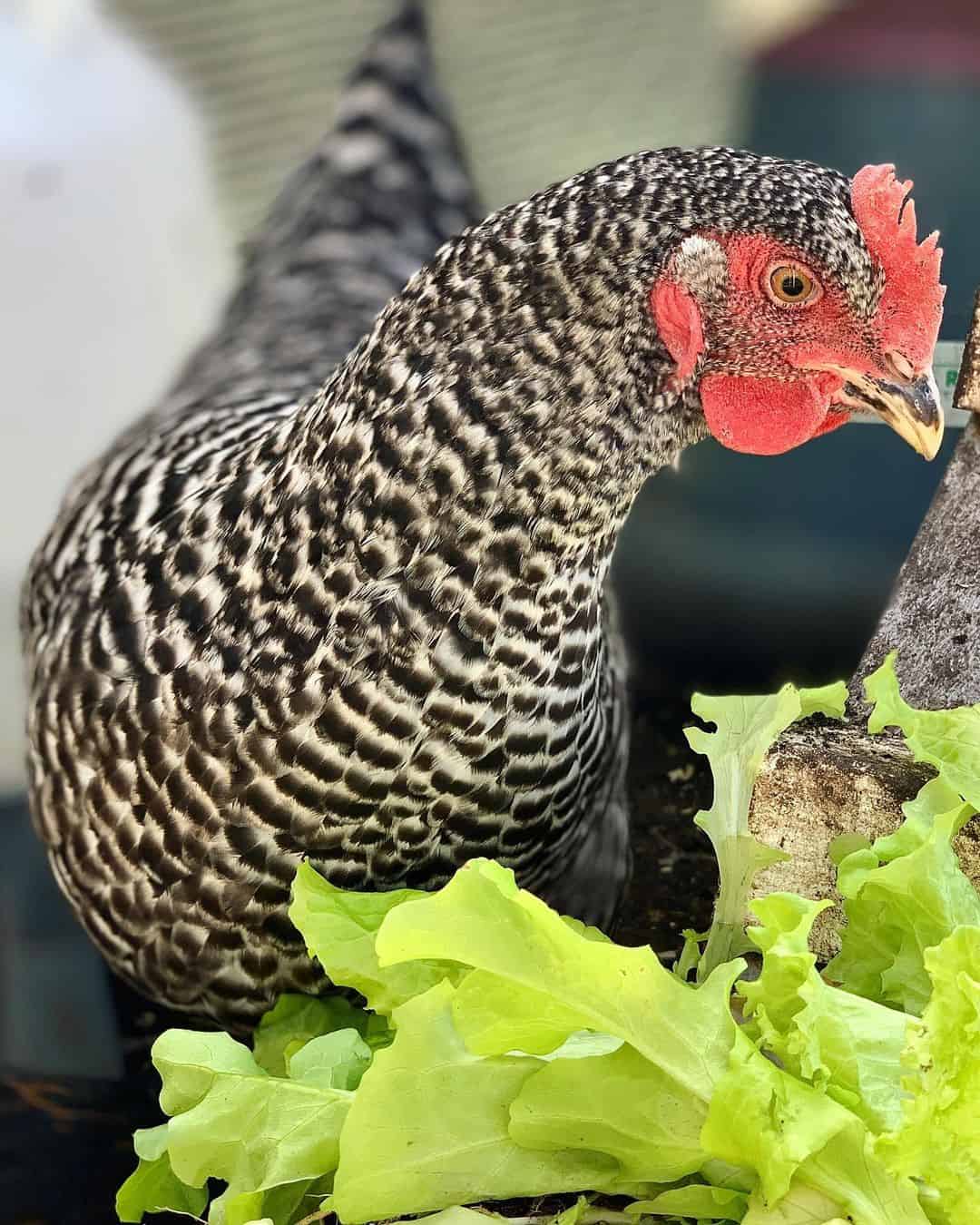
Carrots aren’t the only tasty treats your chickens will gobble up. Here are several other vegetable options that will keep your birds healthy:
1. Celery
These leafy greens are full of vitamins and water- two essential ingredients for forming quality eggs with rich, dark yolks. Vitamins B2, B6, C, and K as some of the important vitamins found in celery.
2. Asparagus
While this might not be a favorite for chickens, it still contains dietary fibers and minerals that are helpful for chickens’ overall growth and development. Take care to only feed your chickens asparagus in small quantities, though, as too much of it can alter the taste of their eggs.
3. Cucumbers
These long-stemmed vegetables can serve as an excellent source of water for your chickens on hot days. They also contain anti-inflammatory properties that target inflamed guts and leave your chickens happy and healthy.
4. Pumpkins
These are not only good sources of medicinal vitamins, but they also help in curbing worm infections in chickens. Fresh, whole pumpkins will entertain your chickens as they try to peck away at them. They also contain Vitamin E, an active ingredient that protects chickens from ailments like coccidiosis and E. Coli.
5. Broccoli
This vegetable is as good for chickens as it is for humans. It contains high amounts of calcium, an essential nutrient that promotes good bone health in chickens. Broccoli also strengthens the immune system to fight pathogens, infections, and parasites.
FAQ
1. Will There Be Any Health Risks When I Feed My Chicken Carrots?
Except the carrots are rotten, there are no known health risks associated with feeding carrots to chickens. Carrots are not like apples, tomatoes, or potatoes that could have dangerous toxins in them.
All known varieties of carrots are safe for chickens to eat, unlike mushrooms that can be found in thousands of edible and inedible species.
2. Can Baby Chickens Eat Carrots?
If you’re a first-time chicken brooder who is nursing chicks, you’re probably wondering if baby chickens can eat carrots since adult chickens love them. Well, baby chickens can eat carrots.
However, the carrots must be properly steamed and grated to make grabbing their underdeveloped beaks easier.
Carrots will not supply all the nutrients a chick needs to survive. As such, you can mix grated carrot bits into pieces of protein to create a balanced meal your baby chicken will love. You can also throw in other vegetables that are soft and easy to chew.
3. Are Carrot Tops Good for Chickens?
It is important to note that every part of a carrot is good for chickens, including the peels and green leafy tops.
If you feed your chickens whole carrots, they will most likely start by eating the leafy tops before devouring the rest. They do this because carrot tops are easier to peck at, and they are also rich in green nutrients that are essential for chickens’ growth.
When feeding whole carrots to your flock, it is advised to wash them thoroughly to remove pesticide residue on the carrot peel.
4. Are Canned Carrots Any Good For Chickens?
Chickens can eat both farm-fresh and canned carrots. However, canned carrots are less appealing to chickens as they contain certain preservatives and additives that may harm their health.
Canned carrots contain additives like sugar or spices and may have fewer vitamins than farm-fresh carrots. So if you want to give your flock canned carrots, you should do it sparingly.
Conclusion
To conclude, can chickens eat carrots? They absolutely can. They love carrots almost as much as humans and will gobble them up when offered occasional treats. These carrots can be served raw or cooked. Either way, they should be properly washed to remove dirt, bacteria, or pesticide residue. Canned carrots can also be given to chickens but only in moderation.
The best way to serve carrots to chickens is by cutting them into small chunks. However, serving them whole can make eating a fun activity for your chickens while they peck at them.

